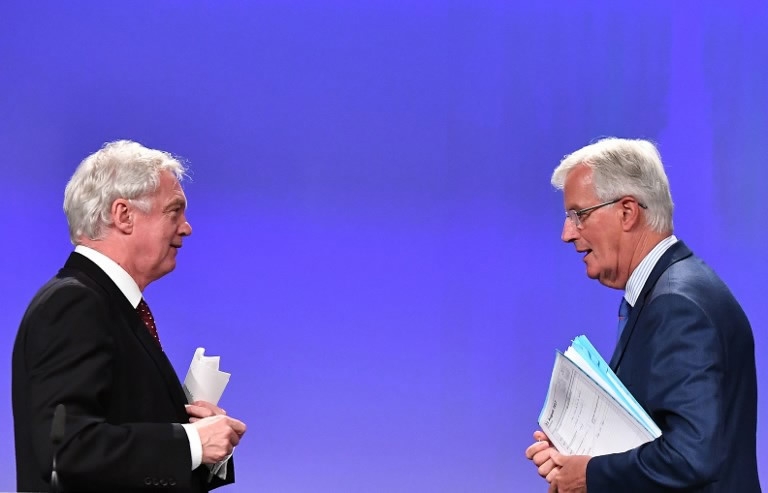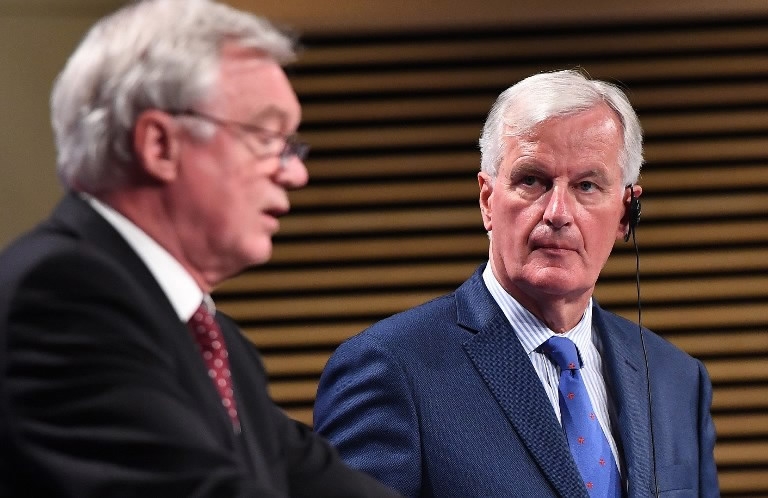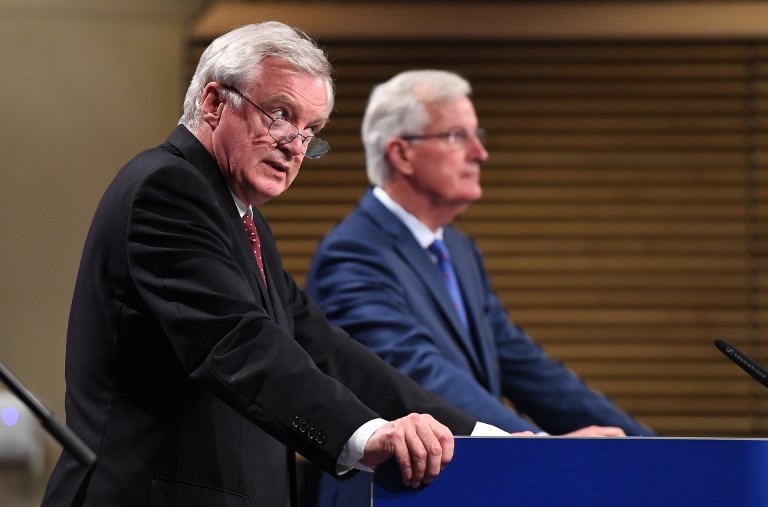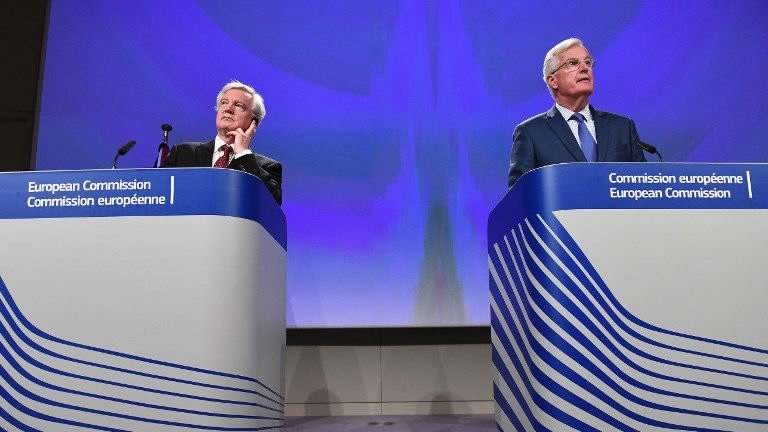The European Union’s chief Brexit negotiator Michael Barnier said on Thursday no “decisive progress” had been achieved in the third round of Brexit talks, and that opening talks on the two sides’ future ties in October was doubtful at the current pace.
Britain’s Brexit minister David Davis said the sides “made some concrete progress”, that there was “high degree of convergence” on the future Irish border and that London would “interrogate rigorously” what it would pay the EU on departure.

British Secretary of State for Exiting the European Union (Brexit Minister) David Davis (L) and EU chief Brexit negotiator Michel Barnier leave after addressing media representatives at the European Union Commission Headquarters in Brussels on August 31, 2017. /AFP Photo
British Secretary of State for Exiting the European Union (Brexit Minister) David Davis (L) and EU chief Brexit negotiator Michel Barnier leave after addressing media representatives at the European Union Commission Headquarters in Brussels on August 31, 2017. /AFP Photo
Brexit talks have resumed in Brussels more than a year after Britons narrowly voted in a national referendum to leave the EU. Despite both the EU and Britain being on a short deadline to deliver a deal, the talks have seen a slow start.
“Over the course of this week we have made a number of useful clarifications on a number of points, for instance the status of border workers,” Barnier told a joint news conference with Davis after the latest round of talks.
“However, we did not get any decisive progress on any of the principle subjects, even though on the discussion we had about Ireland - that discussion was fruitful.”

British Secretary of State for Exiting the European Union (Brexit Minister) David Davis (L) and EU chief Brexit negotiator Michel Barnier address media representatives at the European Union Commission Headquarters in Brussels on August 31, 2017. /AFP Photo
British Secretary of State for Exiting the European Union (Brexit Minister) David Davis (L) and EU chief Brexit negotiator Michel Barnier address media representatives at the European Union Commission Headquarters in Brussels on August 31, 2017. /AFP Photo
Barnier scolded London for demanding the “impossible” - including having a say on the EU’s single market rules while being outside of it - in a series of position papers the British government released last week.
"Protect EU order and Single Market is our top priority in Brexit talks...you can not simply remain in the single market while shun EU responsibilities," said Barnier.
He said both sides disagreed again on Thursday on the EU’s demand, firmly rejected by Britain, that the European Court of Justice must be allowed to police the enforcement of rights of EU citizens residing in Britain after Brexit and vice versa.
Davis reiterated calls from London to move swiftly to talks about a post-Brexit relationship with the EU, saying it impacts whatever becomes part of a divorce agreement.

British Secretary of State for Exiting the European Union (Brexit Minister) David Davis (L) and EU chief Brexit negotiator Michel Barnier address media representatives at the European Union Commission Headquarters in Brussels on August 31, 2017. /AFP Photo
British Secretary of State for Exiting the European Union (Brexit Minister) David Davis (L) and EU chief Brexit negotiator Michel Barnier address media representatives at the European Union Commission Headquarters in Brussels on August 31, 2017. /AFP Photo
The EU has refused to do that before “sufficient progress” is made on securing the rights of expatriates, imagining a future border between the United Kingdom’s province of Northern Ireland and EU member state Ireland, and agreeing to an exit bill.
“Our discussions this week have exposed yet again that UK’s approach is substantially more flexible and pragmatic than that of the EU,” Davis said.
“I remain of the view there is an unavoidable overlap between withdrawal and the future and they cannot be neatly compartmentalized,” he said, reiterating London’s stance that talks on splitting from the EU and forging a new relationship should largely run in parallel.
Source(s): Reuters
,Xinhua News Agency





